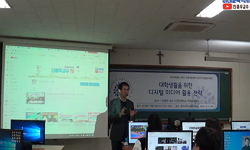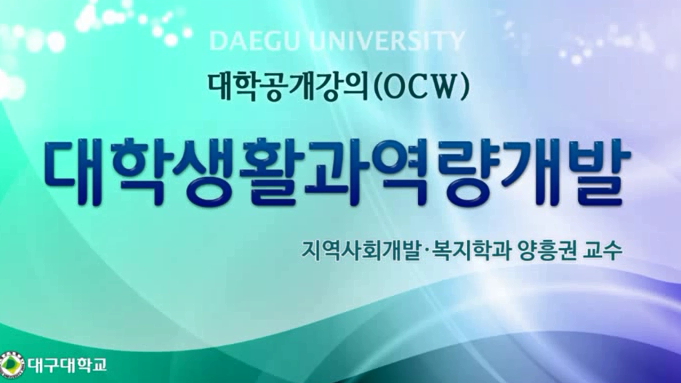산업화 이후 나타난 직업세계의 빠른 변화와 경제침체로 인한 고용불안정은 진로결정 및 직업세계로의 진출을 앞둔 대학생들에게 큰 스트레스 요인이자 최고의 고민으로 손꼽힌다. 이런 시...
http://chineseinput.net/에서 pinyin(병음)방식으로 중국어를 변환할 수 있습니다.
변환된 중국어를 복사하여 사용하시면 됩니다.
- 中文 을 입력하시려면 zhongwen을 입력하시고 space를누르시면됩니다.
- 北京 을 입력하시려면 beijing을 입력하시고 space를 누르시면 됩니다.
A Meta-Analysis of the Variables Related to Career Adaptability for College Students = 진로적응성과 관련 변인에 관한 메타분석: 국내 대학생을 대상으로
한글로보기https://www.riss.kr/link?id=T14906713
- 저자
-
발행사항
서울 : 건국대학교 대학원, 2018
-
학위논문사항
학위논문(석사) -- 건국대학교 대학원 , 교육학과 상담심리전공 , 2018. 8
-
발행연도
2018
-
작성언어
영어
- 주제어
-
발행국(도시)
서울
-
형태사항
112 ; 26 cm
-
일반주기명
지도교수: 이동혁
-
UCI식별코드
I804:11004-200000102117
- 소장기관
-
0
상세조회 -
0
다운로드
부가정보
국문 초록 (Abstract)
이를 반영하듯, 진로적응성을 측정하는 검사도구가 세계 곳곳에서 개발되고 타당화되었으며 이는 진로적응성에 대한 연구를 본격화시켰다. 이 후, 국내에서도 진로적응성에 대한 다양한 연구가 해마다 진행되어졌으나 아직 이를 하나로 정리한 연구는 이루어지지 않았다. 그러므로 본 연구에서는 국내에서 대학생을 대상으로 이루어진 진로적응성 연구들을 메타분석을 통해 종합분석하여 진로적응성이란 무엇이며 이와 관련된 변인들은 무엇이 있는지를 확인하였다. 그 결과 진로적응성과 연관을 보인 변인들로는 진로장벽, 진로탐색행동, 진로관련행동, 계획된 우연기술, 자기주도학습, 강점활용, 진로소명, 진로정체감, 진로결정수준, 진로의사결정자율성, 진로의사결정자기효능감, 성격강점, 내적통제, 불확실성에 대한 불관용, 삶의 만족, 낙관성, 긍정심리자본, 셀프리더십과 사회자본으로 확인되었으며 확인된 변인들은 각각 진로적응성과 통계적으로 유의한 정적 혹은 부적인 상관을 가지는 것으로 나타났다.
본 연구는 진로적응성과 관련된 다양한 변인들을 분류하고 변인들 간의 관련성을 파악함으로써 학문적인 통합에 기여하였다는 점에서 의의를 가진다. 또 한 그 결과를 토대로 다양한 의미를 제공함으로서 국내 대학생들의 보다 건강한 진로발달과 진로적응성을 향상시켜 추후의 삶의 만족으로까지 연결될 수 있도록 다방면적 진로상담적 개입을 제시하였다는 점에서 그 의의가 있다. 마지막으로 의의와 함께 본 연구의 구체적인 함의와 제한점 및 후속연구를 위한 제언이 서술하였다.
산업화 이후 나타난 직업세계의 빠른 변화와 경제침체로 인한 고용불안정은 진로결정 및 직업세계로의 진출을 앞둔 대학생들에게 큰 스트레스 요인이자 최고의 고민으로 손꼽힌다. 이런 시대적 흐름에 맞춰 부상하게 된 개념인 진로적응성은 심리사회적 자원으로서 개인이 진로에 관련한 발달과업과 변화들에 유연하게 대처할 수 있도록 준비하고 예측할 수 없는 미래로의 전환과 적응을 위한 능력이라 정의된다. 진로적응성은 긍정적인 심리적·사회적 자원과 인지적 기술의 집합체로서 현 시대를 살고 있는 개인들에게는 필수불가결한 요소라고 볼 수 있다.
이를 반영하듯, 진로적응성을 측정하는 검사도구가 세계 곳곳에서 개발되고 타당화되었으며 이는 진로적응성에 대한 연구를 본격화시켰다. 이 후, 국내에서도 진로적응성에 대한 다양한 연구가 해마다 진행되어졌으나 아직 이를 하나로 정리한 연구는 이루어지지 않았다. 그러므로 본 연구에서는 국내에서 대학생을 대상으로 이루어진 진로적응성 연구들을 메타분석을 통해 종합분석하여 진로적응성이란 무엇이며 이와 관련된 변인들은 무엇이 있는지를 확인하였다. 그 결과 진로적응성과 연관을 보인 변인들로는 진로장벽, 진로탐색행동, 진로관련행동, 계획된 우연기술, 자기주도학습, 강점활용, 진로소명, 진로정체감, 진로결정수준, 진로의사결정자율성, 진로의사결정자기효능감, 성격강점, 내적통제, 불확실성에 대한 불관용, 삶의 만족, 낙관성, 긍정심리자본, 셀프리더십과 사회자본으로 확인되었으며 확인된 변인들은 각각 진로적응성과 통계적으로 유의한 정적 혹은 부적인 상관을 가지는 것으로 나타났다.
본 연구는 진로적응성과 관련된 다양한 변인들을 분류하고 변인들 간의 관련성을 파악함으로써 학문적인 통합에 기여하였다는 점에서 의의를 가진다. 또 한 그 결과를 토대로 다양한 의미를 제공함으로서 국내 대학생들의 보다 건강한 진로발달과 진로적응성을 향상시켜 추후의 삶의 만족으로까지 연결될 수 있도록 다방면적 진로상담적 개입을 제시하였다는 점에서 그 의의가 있다. 마지막으로 의의와 함께 본 연구의 구체적인 함의와 제한점 및 후속연구를 위한 제언이 서술하였다.
다국어 초록 (Multilingual Abstract)
As the work environment becomes more volatile and uncertain, adaptability is becoming significantly important for career development and career success. Career adaptability is a psychosocial resource for adapting to changes in career-related circumst...
As the work environment becomes more volatile and uncertain, adaptability is becoming significantly important for career development and career success. Career adaptability is a psychosocial resource for adapting to changes in career-related circumstances and managing tasks and transitions. As a central construct of Career Construction Theory and the field of vocational psychology, a large amount of research on career adaptability have been published over the years. This study aims to investigate career adaptability and its related variables for college students by synthesizing the findings of past research. A total of 125 effect sizes and 57 primary studies were included in this meta-analysis. The effect size was correlation and the analysis was based on random-effects model due to the heterogeneity of individuals studies. The variables related to career adaptability identified in the present study are as follows: Career Barriers, Career Exploration Behavior, Occupational Engagement, Planned Happenstance Skills, Self-Regulated Learning, Strengths Use, Calling, Career Identity, Career Decision, Career Decision-Making Autonomy, Career Decision-Making Self-Efficacy, Character Strength, Internal Locus of Control, Intolerance of Uncertainty, Life Satisfaction, Optimism, Positive Psychological Capital, Self-Leadership, and Social Capital. All of the variables above showed either positive or negative association to career adaptability with statistically significant effect sizes. Moreover, sub-group analysis was conducted to confirm the effects of moderating variables which were publication status and measurement instrument. These findings emphasize the importance of development and maintenance of positive psychosocial resources of college students' for their successful career development and career adaptability that leads to their life satisfaction and happiness. Based on the results, this research concludes with practical implications and limitations of the analysis as well as the suggestions for future research.
목차 (Table of Contents)
- Ⅰ. Introduction 1
- 1. Statement of Problem and Purpose of Study 1
- 2. Research Questions 5
- Ⅱ. Review of the Literature 6
- 1. College Students and Career Development 6
- Ⅰ. Introduction 1
- 1. Statement of Problem and Purpose of Study 1
- 2. Research Questions 5
- Ⅱ. Review of the Literature 6
- 1. College Students and Career Development 6
- 2. Career Adaptability 8
- 2.1. Theoretical Origins and Definitions 8
- 2.2. Measurement for Career Adaptability 12
- 3. Variables Related to Career Adaptability 14
- 3.1. Career Adaptability - Demographic Background 14
- 3.2. Career Adaptability - Career Barriers 15
- 3.3. Career Adaptability - Career Skills 16
- 3.4. Career Adaptability - Clarity 20
- 3.5. Career Adaptability - Psychological/Social Resources 22
- 3.6. Summary of the Variables Related to Career Adaptability 29
- Ⅲ. Methodology 31
- 1. Meta-Analysis 31
- 1.1. Overview of Meta-Analysis 31
- 1.2. Meta-Analytical Procedures 33
- 2. Procedures 35
- 2.1. Literature Search 35
- 2.2. Coding of Studies and Reliability 36
- 3. Data Analysis 37
- 3.1. Effect Size 38
- 3.2. Homogeneity Test 41
- 3.3. Publication Bias 42
- Ⅳ. Results 44
- 1. Descriptive Analysis of Selected Studies 44
- 2. Career Adaptability and Its Related Variables 46
- 2.1. Descriptive Analysis of Constructs 46
- 2.2. Effect Size of Constructs 47
- 2.3. Summary of Effect Sizes of All Variables 48
- 3. Effect Size of Demographic Background 50
- 3.1. Effect Size Based on Means of Demographic Background In Relation to Career Adaptability of College Students 50
- 3.2. Results of Demographic Background With Moderator Effect 50
- 4. Effect Size of Career Barriers 51
- 4.1. Effect Size Based on Correlations of Career Barriers In Relation to Career Adaptability of College Students 51
- 4.2. Results of Career Barriers With Moderator Effect 52
- 5. Effect Size of Career Skills 53
- 5.1. Effect Size Based on Correlations of Career Skills In Relation to Career Adaptability of College Students 53
- 5.2. Results of Career Skills With Moderator Effect 53
- 6. Effect Size of Clarity 57
- 6.1. Effect Size Based on Correlations of Clarity In Relation to Career Adaptability of College Students 57
- 6.2. Results of Clarity With Moderator Effect 58
- 7. Effect Size of Psychological/Social Resources 59
- 7.1. Effect Size Based on Correlations of Psychological/Social Resources In Relation to Career Adaptability of College Students 59
- 7.2. Results of Psychological/Social Resources With Moderator Effect 60
- 8. Examination of Publication Bias 63
- Ⅴ. Discussion 66
- 1. Summary and Discussion 66
- 2. Practical Implication 71
- 3. Limitations and Recommendations for Future Study 73
- References 75
- Appendix 98
- Abstract (in Korean) 111












